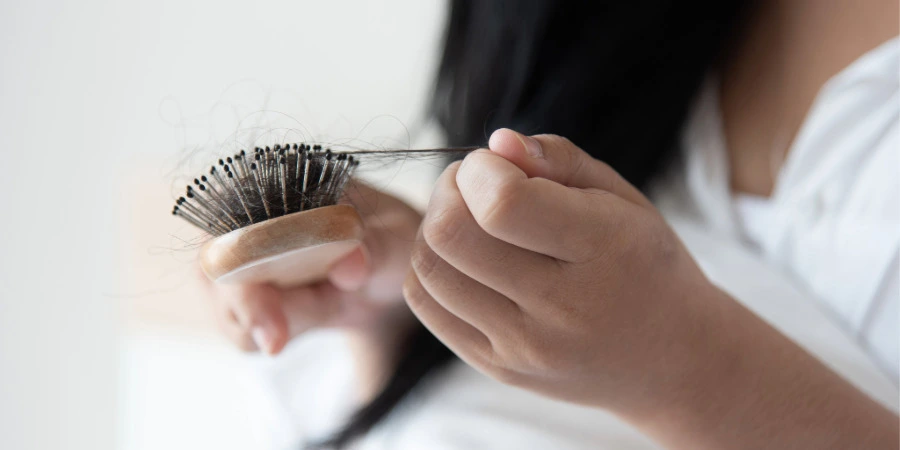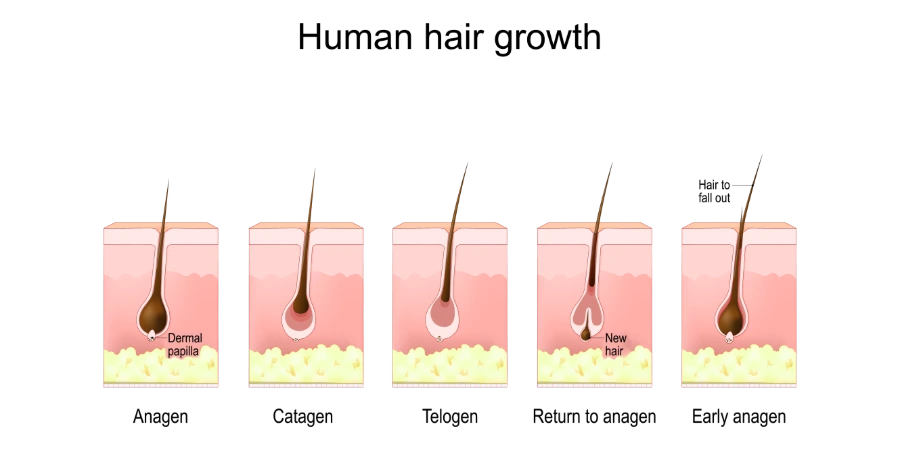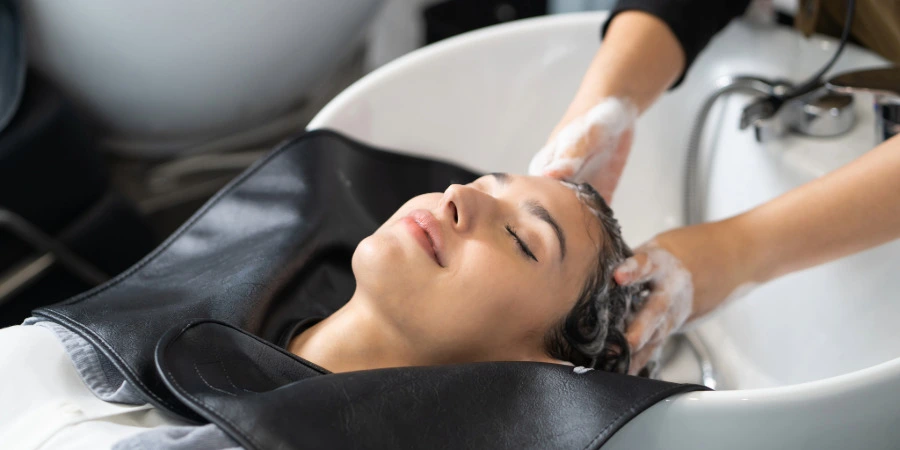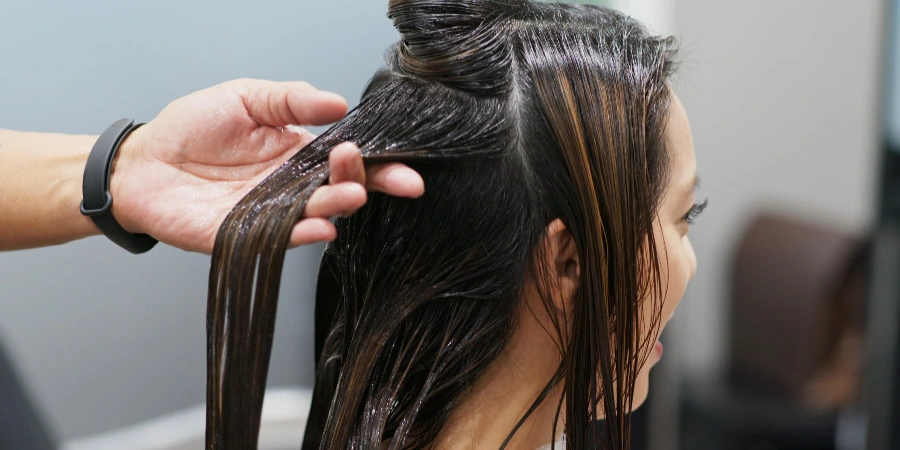{{ Interface.PageTitle }}

Hair loss affects millions of people worldwide, with studies showing that up to 50% of individuals over 50 experience some degree of hair thinning or loss. Whether you're noticing more hair in your brush, a widening parting, or thinning at the crown, hair loss can significantly impact your confidence and daily life. This comprehensive guide explores everything you need to know about hair loss, from understanding its root causes to discovering effective prevention strategies and treatment options available right here in Malaysia.
At Holistic Hair Care, with locations in Kepong, Cheras, and Puchong, our experienced hair care specialists understand that each person's hair loss journey is unique. We're here to help you navigate this challenge with expert guidance, personalized care, and proven treatment solutions that work.
What is Hair Loss?
Hair loss, medically known as alopecia, occurs when the natural cycle of hair growth is disrupted, leading to excessive shedding or the inability to grow new hair. While it's normal to lose 50-100 hairs daily as part of the natural hair renewal process, hair loss becomes a concern when this number significantly increases or when new hair growth cannot keep pace with hair shedding.
Hair loss can manifest in various ways, from gradual thinning across the scalp to distinct bald patches or complete hair loss in specific areas. Understanding that hair loss is a complex condition influenced by multiple factors is the first step toward finding effective solutions.
The hair growth cycle consists of three phases: anagen (growth phase), catagen (transition phase), and telogen (resting phase). When this cycle is disrupted, hair follicles may become damaged or destroyed, sometimes being replaced with scar tissue, which prevents future hair growth.

Signs and Symptoms of Hair Loss
Recognizing the early signs of hair loss is crucial for timely intervention and better treatment outcomes. Here are the key indicators to watch for:
- Early Warning Signs:
- Increased hair shedding during washing or brushing
- More hair on your pillow in the morning
- Visible scalp through your hair when styling
- Slower hair growth than usual
- Changes in hair texture, becoming finer or more brittle
- Progressive Symptoms:
- Widening of your natural hair parting
- Thinning at the temples or crown area
- Receding hairline, particularly noticeable at the forehead
- Development of bald spots or patches
- Overall reduction in hair volume and density
- When to Be Concerned:
If you notice sudden, rapid hair loss, patchy bald spots, or if hair loss is accompanied by an itchy scalp and inflammation, it's important to seek professional assessment. These symptoms may indicate underlying conditions that require specialized attention. - Self-Assessment Indicators:
Pay attention to how much hair you lose daily and whether you can see more scalp than before. Take photos from different angles monthly to track any changes, and consider consulting hair care specialists if you're concerned about the rate or pattern of your hair loss.
Root Causes and Risk Factors
Understanding what causes hair loss is essential for developing an effective treatment strategy. Hair loss can result from various factors, often working in combination:
- Primary Causes:
- Hormonal Changes:
Fluctuations in hormones, particularly dihydrotestosterone (DHT), play a significant role in hair loss. DHT can shrink hair follicles, leading to progressively thinner and shorter hair until follicles stop producing hair altogether. - Disrupted Hair Growth Cycle:
When the natural cycle of hair growth is interrupted, hair may enter the resting phase prematurely or remain in this phase longer than normal, resulting in increased shedding and reduced new growth. - Hair Follicle Damage:
Physical trauma, chemical damage, or certain medical conditions can destroy hair follicles. When follicles are replaced with scar tissue, permanent hair loss occurs in those areas.
- Hormonal Changes:
- Contributing Factors:
- Genetic Predisposition:
Family history significantly influences your likelihood of experiencing hair loss. Both maternal and paternal genetics contribute to hair loss patterns. - Stress:
Chronic stress can push hair follicles into the resting phase, leading to increased shedding several months after the stressful event. - Nutritional Deficiencies:
Lack of essential vitamins and minerals, particularly iron, vitamin D, biotin, and B vitamins, can contribute to hair loss. - Environmental Factors:
Pollution, harsh weather conditions, and exposure to chemicals can damage hair and scalp health.
- Genetic Predisposition:
- Lifestyle Factors:
- Tight hairstyles that pull on hair roots (traction alopecia)
- Excessive heat styling and chemical treatments
- Poor scalp hygiene
- Inadequate diet and hydration
- Lack of sleep and high stress levels
- Age and Gender Considerations:
While hair loss can affect anyone at any age, it becomes more common with age. Men typically experience hair loss earlier and more extensively than women, though post-menopausal women also face increased risk due to hormonal changes.
Types of Hair Loss
Hair loss manifests in several distinct patterns and types, each with its own characteristics and treatment approaches:
- Male Pattern Baldness (Androgenic Alopecia in Men):
The most common form of hair loss in men, typically beginning with a receding hairline and thinning at the crown. It follows a predictable pattern, progressing through various stages from minimal thinning to extensive baldness. - Female Pattern Baldness (Androgenic Alopecia in Women):
Women typically experience diffuse thinning across the top of the scalp rather than distinct bald patches. The hairline usually remains intact, but the parting becomes wider and more scalp becomes visible. - Menopausal Hair Loss:
Hormonal changes during menopause can accelerate hair loss in women. Declining estrogen levels and the relative increase in androgens contribute to thinning hair and reduced hair density. - Post-natal Hair Loss:
Many women experience temporary hair loss 2-4 months after childbirth due to hormonal fluctuations. While usually temporary, some women may need professional support to restore their pre-pregnancy hair health. - Chemical-related Hair Loss:
Damage from harsh chemicals in hair treatments, including bleaching, perming, and straightening, can weaken hair shafts and damage follicles, leading to breakage and hair loss. - Severity Classifications:
- Mild: Noticeable thinning but adequate hair coverage
- Moderate: Significant thinning with visible scalp areas
- Severe: Extensive hair loss with large areas of visible scalp or complete baldness in affected regions
Diagnosis and Professional Assessment
While you may notice signs of hair loss yourself, professional assessment is crucial for accurate diagnosis and effective treatment planning. Here's what to expect when consulting hair care specialists:

- When to Consult a Professional:
- Sudden or rapid hair loss
- Patchy hair loss patterns
- Hair loss accompanied by scalp irritation, itching, or pain
- Family history of hair loss and early prevention concerns
- Unsuccessful attempts at managing hair loss independently
- Assessment Methods:
Professional hair care specialists use various techniques to evaluate your hair loss, including detailed scalp examination, hair pull tests to assess shedding patterns, and analysis of your hair's density and quality. They'll also review your medical history, lifestyle factors, and family history of hair loss. - What to Expect During Consultation:
Your consultation at Holistic Hair Care will include a comprehensive scalp and hair analysis, discussion of your concerns and goals, review of potential contributing factors, and development of a personalized treatment plan. Our specialists take time to understand your unique situation and provide realistic expectations for treatment outcomes. - Questions to Ask Your Specialist:
- What type of hair loss am I experiencing?
- What are the likely causes in my specific case?
- What treatment options are most suitable for me?
- How long before I can expect to see results?
- What can I do at home to support treatment?
Prevention Strategies
Prevention is often more effective than treatment when it comes to hair loss. Here are evidence-based strategies to maintain healthy hair and potentially slow hair loss:
- Lifestyle Modifications:
Maintain a balanced diet rich in proteins, vitamins, and minerals essential for hair health. Regular exercise improves circulation, including blood flow to the scalp. Manage stress through relaxation techniques, adequate sleep, and stress-reduction activities. - Hair Care Routine Adjustments:
Use gentle, sulfate-free shampoos and avoid over-washing, which can strip natural oils. When washing, massage your scalp gently to stimulate circulation. Use lukewarm water instead of hot water, which can dry out hair and scalp. - Products to Avoid:
Limit use of harsh chemicals, including bleaches and strong relaxers. Avoid tight hairstyles
that pull on hair roots, such as tight ponytails or braids. Reduce heat styling and always use heat protectant
products when styling is necessary. - Protective Measures:
Protect your hair from environmental damage by wearing hats in strong sun or harsh
weather. Use silk or satin pillowcases to reduce friction while sleeping. Handle wet hair gently, as it's more
susceptible to damage. - Nutritional Support:
Ensure adequate intake of vitamins and minerals crucial for hair health:- Iron: Essential for hair follicle health
- Vitamin D: Supports hair follicle cycling
- Biotin and B vitamins: Important for hair strength and growth
- Protein: The building block of hair structure
- Omega-3 fatty acids: Support scalp health and hair shine
Consider high-quality hair supplements if your diet lacks these essential nutrients, but consult with professionals for personalized recommendations.
Treatment Options Overview
Effective hair loss treatment requires a comprehensive approach tailored to your specific type of hair loss, its severity, and underlying causes. At Holistic Hair Care, we offer various evidence-based treatments designed to address different aspects of hair loss. Check out our professional treatments →

- Non-invasive Treatment Approaches:
Our treatment philosophy focuses on holistic, non-invasive methods that work with your body's natural processes to promote hair health and growth. These treatments are designed to be comfortable, effective, and suitable for long-term use. - Professional Treatment Benefits:
Professional treatments offer several advantages over at-home remedies, including targeted application, higher concentration of active ingredients, professional monitoring of progress, and combination therapy approaches that address multiple factors simultaneously. - At-home Care Solutions:
Complement professional treatments with appropriate at-home care, including specialized shampoos and conditioners, scalp massage techniques, nutritional supplements, and lifestyle modifications that support overall hair health. - Combination Therapy Approaches:
The most effective hair loss treatment often involves combining different approaches. This might include professional treatments with nutritional support, lifestyle changes, and appropriate at-home care products for optimal results.
Living with Hair Loss
Hair loss can be emotionally challenging, but there are many ways to maintain confidence and manage the condition effectively:
- Daily Management Tips:
Develop a gentle hair care routine that minimizes further damage while maximizing the appearance of your existing hair. Use volumizing products to create the appearance of fuller hair, and consider hairstyles that work with your current hair density rather than against it. - Styling Suggestions:
Work with professional stylists who understand hair loss to find flattering cuts and styles. Shorter styles often make thinning hair appear fuller, while strategic layering can add volume and movement. Avoid styles that emphasize thinning areas. - Confidence-Building Strategies:
Remember that hair loss is a common experience that doesn't define your worth or attractiveness. Focus on overall health and well-being, engage in activities that boost self-esteem, and consider connecting with others who have similar experiences. - Support and Resources:
Don't hesitate to seek emotional support when dealing with hair loss. Whether through friends, family, support groups, or professional counseling, having a support system can make a significant difference in how you cope with hair loss.
When to Seek Professional Help
Knowing when to consult hair care specialists can make a significant difference in treatment outcomes:
- Red Flags and Warning Signs:
- Sudden, rapid hair loss over a short period
- Patchy bald spots or unusual hair loss patterns
- Hair loss accompanied by scalp pain, itching, or irritation
- Signs of scalp infection or inflammation
- Hair loss that significantly impacts your quality of life
- Choosing the Right Specialist:
Look for experienced hair care specialists with proven track records in treating your specific type of hair loss. At Holistic Hair Care, our specialists have extensive experience in non-invasive hair loss treatments and are committed to providing personalized, compassionate care. - Treatment Expectations and Timelines:
Hair treatment is typically a gradual process, with initial improvements often visible within 2-3 months and more significant results after 6-12 months of consistent treatment. Your specialist will provide realistic timelines based on your specific condition and chosen treatment approach.
Frequently Asked Questions

- How much hair loss is normal daily?
It's normal to lose 50-100 hairs per day as part of the natural hair renewal cycle. If you're losing significantly more than this consistently, it may indicate a hair loss condition that could benefit from professional assessment. - Can stress cause hair loss?
Yes, chronic stress can definitely cause hair loss. Stress pushes hair follicles into the resting phase, leading to increased shedding typically 2-4 months after the stressful event. Managing stress through relaxation techniques and lifestyle changes can help prevent stress-related hair loss. - Which vitamin deficiency causes hair loss?
Several vitamin deficiencies can contribute to hair loss, including iron, vitamin D, biotin, and B vitamins. A balanced diet and appropriate supplementation can help address these deficiencies and support hair health. - What causes female hair loss?
Female hair loss can result from hormonal changes (particularly during menopause or after childbirth), genetic predisposition, nutritional deficiencies, stress, certain medications, and harsh hair treatments. The pattern typically involves diffuse thinning rather than distinct bald patches. - How can I prevent hair loss naturally?
Natural prevention strategies include maintaining a balanced diet rich in hair-healthy nutrients, managing stress levels, using gentle hair care products, avoiding tight hairstyles, protecting hair from environmental damage, and ensuring adequate sleep and hydration. - What is the difference between alopecia and regular hair loss?
Alopecia is the medical term for hair loss in general. However, when people refer to "alopecia," they often mean alopecia areata, which causes patchy hair loss and is an autoimmune condition. Regular hair loss typically refers to androgenic alopecia (pattern baldness). - Can hair serum help with hair loss?
Quality hair serums containing active ingredients like peptides, vitamins, and botanical extracts can help support scalp health and potentially slow hair loss when used as part of a comprehensive treatment approach. - Is postpartum hair loss permanent?
Postpartum hair loss is usually temporary, with hair typically returning to its pre-pregnancy state within 6-12 months after childbirth. However, some women may benefit from professional support to optimize hair recovery during this period.
Conclusion
Hair loss is a common condition that can significantly impact confidence and quality of life, but it's important to remember that effective solutions are available. Understanding the causes, recognizing early signs, and taking proactive steps toward prevention and treatment can make a substantial difference in outcomes.
Whether you're experiencing the early signs of hair thinning, dealing with pattern baldness, or facing hair loss due to hormonal changes or other factors, professional guidance can help you navigate your options and choose the most effective treatment approach for your specific situation.
At Holistic Hair Care, with convenient locations in Kepong, Cheras, and Puchong, our experienced hair care specialists are dedicated to helping you achieve healthier, fuller hair through personalized, non-invasive treatment approaches. We understand that every person's hair loss journey is unique, and we're committed to providing the support, expertise, and effective treatments you need to restore your confidence.
Don't let hair loss control your life. Take the first step toward healthier hair by scheduling a consultation with our experienced team. Together, we can develop a comprehensive treatment plan that addresses your specific needs and helps you achieve the hair health and confidence you deserve.
Ready to start your hair restoration journey? Contact Holistic Hair Care today to schedule your personalized consultation at our Kepong, Cheras, or Puchong location.
